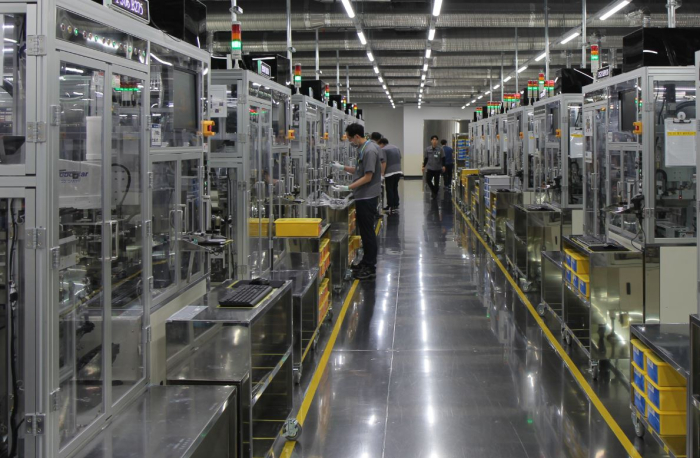Tech
Samsung Electro-Mechanics to benefit as COVID-19 slams competitors
Murata shuts plant in Japan, Taiyo cuts output in Malaysia, while Samsung has no production disruptions
By Aug 27, 2021 (Gmt+09:00)
2
Min read
Most Read
Samsung shifts to emergency mode with 6-day work week for executives


CJ CheilJedang to sell feed, livestock unit for $1.4 bn


Samsung Electronics' key M&A man returns; big deals in the offing


Affinity to buy SK Rent-a-Car at $572 mn, more deals expected


Keppel REIT to sell Seoul-based prime office T Tower



Samsung Electro-Mechanics is expected to benefit as the COVID-19 has hit its competitors in the global multi-layer ceramic capacitor (MLCC) market.
The worldŌĆÖs top MLCC producer Murata Manufacturing Co. temporarily closed its plant in Japan due to the pandemic, while Taiyo Yuden Co., the third-largest supplier, sharply cut operating rates at its Malaysian factory as the Southeast Asian country extended lockdowns.
Samsung, the No. 2 player, however, has not been affected by COVID-19.
STRONG DEMAND
MLCCs are components that stabilize current flows in the circuits of electronic products. A 5G smartphone needs about 1,000 units, while a new electric vehicle requires about 13,000 units.
Its demand increased recently on rising electronics sales due to stay-at-home consumption amid the COVID-19 pandemic. Automotive MLCC demand also surged thanks to the rising global EV industry.
But production disruptions at Murata are expected to deteriorate global supply. The delivery period for MLCCs from major manufacturers has increased to up to 25 weeks recently from 14 weeks, according to the industry.
Prices are also rising. Samsung said the average prices rose 2.1% in the January-June period, according to its half-year earnings statement. Prices for high-tech models were estimated to have grown by 10-40%, the industry sources said. TaiwanŌĆÖs Yageo recently raised MLCC prices by 10-20%.
MURATA SHUTS PLANTS THREE TIMES IN TWO YEARS
Murata decided to shut a plant in Echizen in the central prefecture of Fukui until at least Aug. 31 after 98 of its 7,000 workers tested positive for COVID-19, according to Reuters. The Echizen plant is MurataŌĆÖs largest MLCC output base, producing about 60% of its total MLCC capacity of 130 billion units a month.
The factory has been already closed twice since last year. In April 2020, Murata suspended the plant after one employee tested positive for the pandemic. Murata failed to meet the customer deadlines and extended the delivery date twice at that time. Earlier this year, an earthquake damaged the production base.
MurataŌĆÖs share in the global MLCC market fell to 34% in the first quarter from around 40% two years ago.
The Japanese company is likely to lose the share more as customers including electronics and carmakers are expected to seek other suppliers due to inventory shortage.
Samsung is expected to be a key beneficiary as it is the only major MLCC maker in the world that has not suffered from production disruptions due to COVID-19.
Samsung already raised its MLCC market share to 24% in the first quarter from 22% in 2019.
That share is expected to grow further from the third quarter as its second plant in Tianjin, China, started mass production in July. The new factoryŌĆÖs capacity is known to be 1.4 times that of the first plant there.
Write to Su-Bin Lee and Yeong-Hyo Jeong at lsb@hankyung.com
Jongwoo Cheon edited this article.
More to Read
Comment 0
LOG IN







